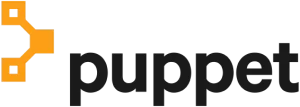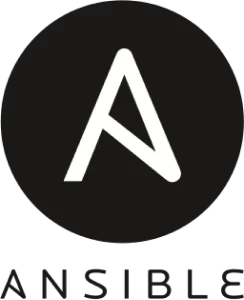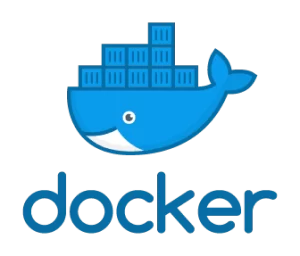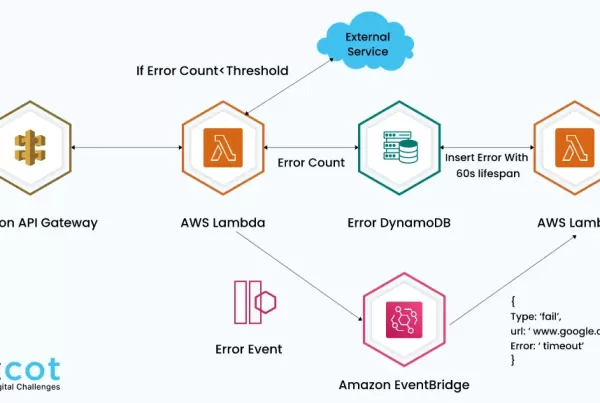
DevOps technology brings together the development and operations of any software in a seamless cycle. The goal of DevOps is to reduce the development lifecycle and create a simple and continuous delivery system.
To achieve this, several tools can be used at various stages. DevOps tools aid automation of the software development process by focusing on product management, communication, development, and collaboration. With the right DevOps tools, teams can automate most mundane software development processes and pay attention to the essential tasks.
If your organization is planning to adopt the DevOps methodology, an excellent place to start is by learning about the various tools that are available for you to choose from. Here is a list of the top 10 DevOps tools to use in 2022 and beyond.
Jenkins
 Type of Tool: DevOps Automation
Type of Tool: DevOps Automation
Jenkins is an open-source, accessible automation server that helps you automate several software development processes, including CI/CD, building, deployment, and testing. It makes it easy for the teams to keep track of repetitive tasks, integrate changes seamlessly and spot errors instantly.
It is Java-based and serves as a CI or continuous integration tool for developers to make it simpler to incorporate new components into the software. Jenkins makes use of plugins to achieve these functions.
Highlights
Jenkins has been used for a long time and has a mature ecosystem. You also have a community for any plugin, documentation, or tool-related support, and it has almost become a standard DevOps tool.
GitHub
 Type of Tool: DevOps Version Control
Type of Tool: DevOps Version Control
It is one of the largest and most advanced platforms for software development. The easy-to-use user interface makes it a popular choice for most companies. It also has several innovative features such as restoring deleted repositories, preventing production deletions, security features, and integration options.
You also have the option of Git version control and web hosting for your software development. It was released in 2008 and was written in ECMAScript, Ruby, C, and Go. Currently, more than 3 million organizations in the world use Github.
Highlights
Github is one of the most reliable tools as it has close to zero outages and downtime. All the essential services are free, too.
Puppet
 Type of Tool: DevOps Configuration Management Tool
Type of Tool: DevOps Configuration Management Tool
Puppet is a multi-platform configuration management tool. You can write your entire infrastructure management using this tool. The software can be delivered safely and faster because the infrastructure management process is automated. For smaller projects, Puppet can be used as an open-source tool.
If your infrastructure is more extensive, you may require other capabilities such as role-based access control, real-time reports, node management, etc. You have the option of managing many teams and hundreds of resources using this tool. Any dependencies or failures are handled intelligently by this tool. It skips dependent configurations when a bad configuration is discovered.
Highlights
Puppet recognizes the relationships within the infrastructure on its own. It has more than 5000 modules that can integrate with the most popular DevOps tools.
Status
Type of Tool: DevOps Monitoring Tool
Status is an APM Or Application Performance Monitoring tool that helps you diagnose any performance issues and track them down to the root cause. It can identify API calls, codes, and functions that may have led to problems in performance.
You can check the complete overview of the database performance and the slow database queries. You have the option to filter them and inspect them using the original SQL query trace. The status also lets you check individual database breakdowns to check if the response time has deteriorated.
The main advantage of Atatus is that it helps you maximize the performance of other DevOps tools as well. It gives you regular alerts about issues and brings together the Development and Operations team together by providing a standard report of the performance problems and the origin of any errors.
Highlights
Status automatically identifies the highest priority defects based on your software’s goals and primary concerns. It also gives you a single source for all the information about request parameters, stack trace, affected user, environment, host, and more.
Ansible
 Type of tool: DevOps Configuration Management Tool
Type of tool: DevOps Configuration Management Tool
Ansible helps you automate deployment processes and set up your complete infrastructure. Compared to other DevOps tools, it stands out because of the convenience of use and simplicity. It uses an IAC or Infrastructure as Code approach.
It uses a simple YAML syntax that defines tasks very quickly. The agentless architecture is another feature of Ansible that has made it famous. It is a lightweight solution for configuration management because no agents or daemons are running in the background.
Highlights
The absence of daemons and agents also makes Ansible one of the most secure tools. It also offers several modules that can be integrated easily with other DevOps software.
Docker
 Type of Tool: DevOps Container Management Tool
Type of Tool: DevOps Container Management Tool
Since it was launched in 2013, Docker has become one of the most popular container platform tools. It has continued to evolve and is now regarded as one of the most crucial tools for DevOps. The concept of containerization became popular in the tech sector after the release of Docker, which supports remote development and automates application deployment.
The applications are separated into different containers, making them secure and portable. Docker applications are also independent of OS and platform. This means you don’t have to manage dependencies, unlike virtual machines like VirtualBox. It is also more cost-effective.
Highlights: You can package all the dependencies into Docker containers and ship them as a single unit. This allows the software to perform on any platform or system without any issues.
BitBucket
![]()
Type of Tool: DevOps Version Control Tool
BitBucket is a development project version control repository service. It uses GIt or Mercurial revision control systems. It is handy if you are using Atlassian products. BitBucket is capable of efficiently managing many repositories. On the public repository of BitBucket, you can have unlimited users.
It can integrate seamlessly with Confluence and JIRA. It is not only a code hosting platform but is also helpful for code management.
Highlights
BitBucket is the best option for projects with private repositories. You also have pipeline services to support CI/CD cycles. You can use a single platform to plan projects, collaborate on codes, test them, and deploy them efficiently.
Bamboo
 Type of Tool: DevOps Pipeline Tool
Type of Tool: DevOps Pipeline Tool
Bamboo is a CI/CD or Atlassian’s delivery server that lets you automate the delivery pipeline from development to deployment. It is easily integrated with BitBucket, Jira, and other Atlassian products. It has a built-in Mercurial and Git branching workflow along with test environments. Overall, you can save a lot of time concerning the configuration when using Bamboo. Bamboo is more user-friendly with auto-completion, tooltips, and other features.
Highlights
Bamboo comes with several pre-built features that must be manually set in other CI/CD tools. It uses about 100 plugins to enable this. Bamboo also carries out several out-of-the-box functions that reduce the dependency on plugins.
Selenium
 Type of Tool: DevOps Testing Automation Tool
Type of Tool: DevOps Testing Automation Tool
Testing automation is one of the most significant advantages of switching to DevOps. Selenium offers a user-friendly, end-to-end solution that allows your testers to send API queries, simulate web system behavior, and analyze system behavior. You can test advanced and elaborate test scripts in HTML or RUBY to deal with different causes.
Selenium is an integrated development environment that allows web developers to record, edit and debug tests. Custom start points and breakpoints can also be created for various test scenarios.
Highlights
Selenium can be integrated with Maven, Jenkins, TestNG, SauceLabs, and many other development platforms. The Selenium Grid also allows parallel testing. It supports all popular languages, including Ruby, Java, C#, JavaScript, PHP, R, and Perl.
Slack
 Type of Tool: DevOps Collaboration Tool
Type of Tool: DevOps Collaboration Tool
Slack has gained immense traction in the last few years for being one of DevOps’ best collaboration and communication tools. It uses an API or Application Programming Interface to automate activities such as automatic notifications based on human input, sending alters according to defined criteria, and creating support tickets for internal use. It s best known for its connectivity with various services, frameworks, and applications.
Slack’s instant messaging integrations are readily available on several software collaboration platforms because of its growing popularity. It can also create infrastructure routines, chatbots, and triggers using simple programming.
Highlights
Slack enables real-time discussions, search capabilities, and an engaging UI. According to experts, Slack’s agility and robust features will replace emails in the software sector.
With so many new DevOps tools being introduced in the market each year, It is hard to know which one is best suited for you. Each one comes with a unique set of capabilities meant to make your DevOps journey easier.
Experimentation is the best option for most organizations to find their ideal DevOps tools. It is recommended that you opt for free trials offered by commercial tools instead of spending time configuring open-source tools.
You can also choose a DevOps consultation with Bitcot. We help you find the most suitable tools and connect you with DevOps personnel to make a smooth transition. This is the most reliable option to create a robust DevOps infrastructure that is also scalable as your organization grows.









